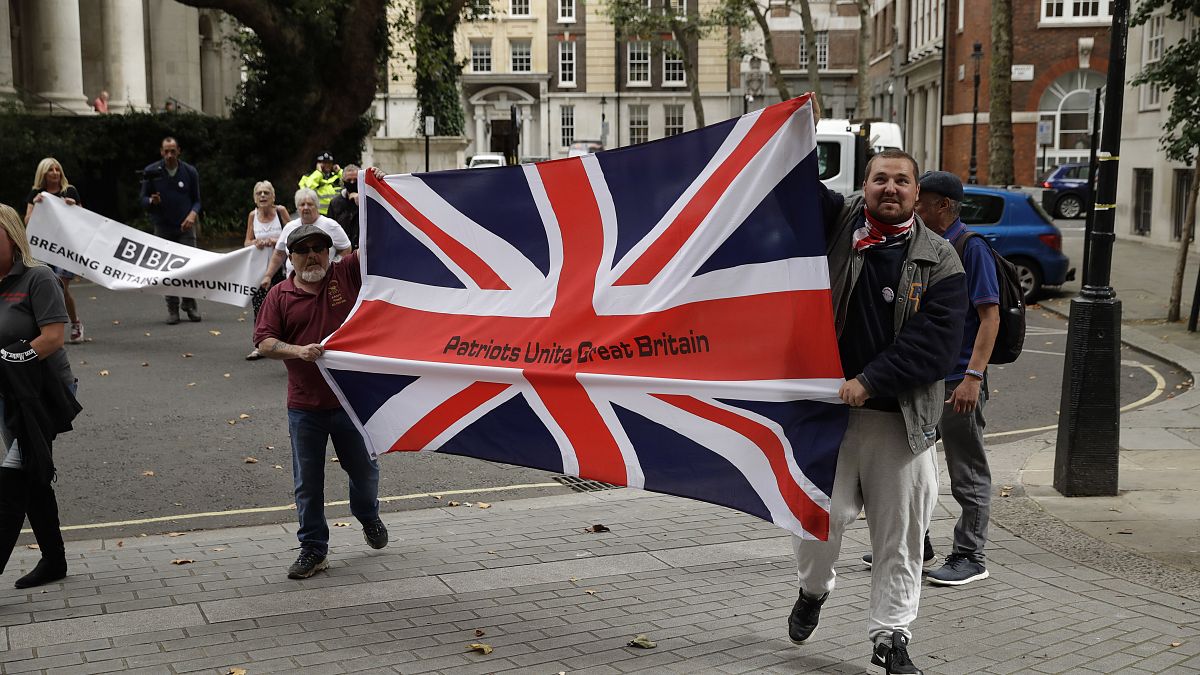Legal experts say a bill proposed by the UK is designed to override key portions of a deal on Northern Ireland signed less than a year ago
A new law proposed by the British government would directly violate the Brexit deal it signed with the European Union last year, legal experts have said.
The bill gives ministers powers to "disapply" parts of the rules agreed in October 2019 for goods that cross in and out of Northern Ireland.
European Union leaders warned that these rules, formally known as the Northern Ireland Protocol, are legally binding and breaking them would be a breach of international law.
Brandon Lewis, the British minister responsible for Northern Ireland, insisted the new UK bill would break international law in a "very specific and limited way".
But so-called "partial" breaches of international law do not exist, according to Dr Holger Hestermeyer from the Dickson Poon School of Law at King's College London.
"This is the announcement of the breach of international law and that is surprising — and, as far as I know, unprecedented before parliament," he told Euronews.
Hestermeyer said the new bill, which was announced on Wednesday, would directly prevent parts of the EU withdrawal agreement from applying in the UK.
Ministers overriding agreements
For example, it would allow ministers to override rules on checking goods that travel from Northern Ireland to other parts of the UK — something that is already outlined in the Protocol.
The UK bill would also give ministers the power to change the Protocol's articles on state aid.
Raphael Hogarth, an associate at the UK-based Institute for Government think-tank, said the bill was attempting to change laws regardless of whether they were incompatible with existing legislation or agreements.
The British government is "trying to create a totally non-justiciable power," he said.
Catherine Barnard, Professor of European Union law at Cambridge University, said the bill contained "clear instructions to the UK courts" that they could not find ministers' actions unlawful.
Northern Ireland, part of the UK, has long been a Brexit sticking point because of the border it shares with the Republic of Ireland, which remains an EU member state.
At present the border is open and no customs checks are conducted on goods or people who cross it, but a no-deal Brexit could have meant placing guards or even a fence along the 499-kilometre frontier.
There were also fears that a physical separation could threaten the Good Friday Agreement, a peace deal that took effect in 1999.
The Protocol signed between the UK and EU was designed to ensure a division would not happen and that border checks would not be imposed even if there was no overarching Brexit deal.
"The Northern Ireland Protocol was supposed to be a tight and viable solution even if there is no free trade agreement for the problem of not wanting a border on the island of Ireland," said Hestermeyer.
Possibility of sanctions
UK prime minister Boris Johnson, who agreed the Protocol in October 2019, said on Wednesday that his country needs legal protections against "extreme or irrational interpretations of the Protocol which could lead to a border down the Irish Sea".
But the European Union warned Britain that the keeping to agreements was an "age-old diplomatic cornerstone".
Charles Michel, the president of the European Council, said: “Breaking international law is not acceptable and does not create the confidence we need to build our future relationship."
Britain's parliament will begin debating the bill in the House of Commons on Thursday.
The sizeable opposition among government MPs could mean it is amended substantially before it becomes law.
But if the EU considers the final product to be a breach of an international agreement, Hestermeyer said, there are a broad range of mechanisms it could consider in response — including trade tariffs.


